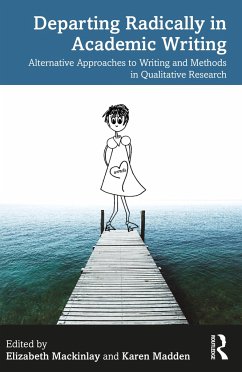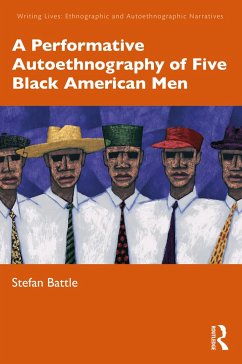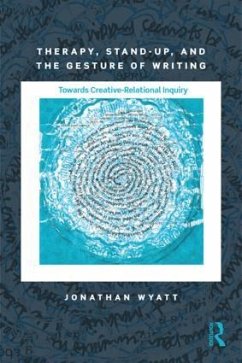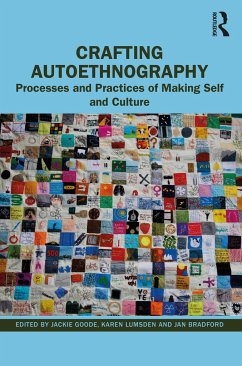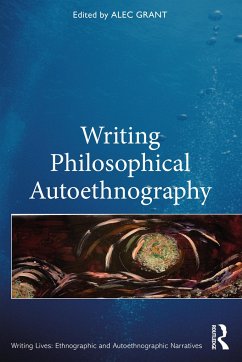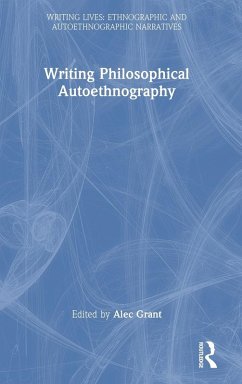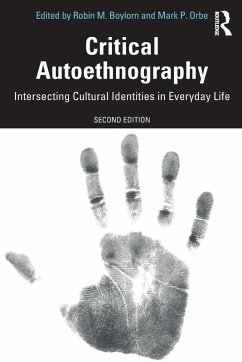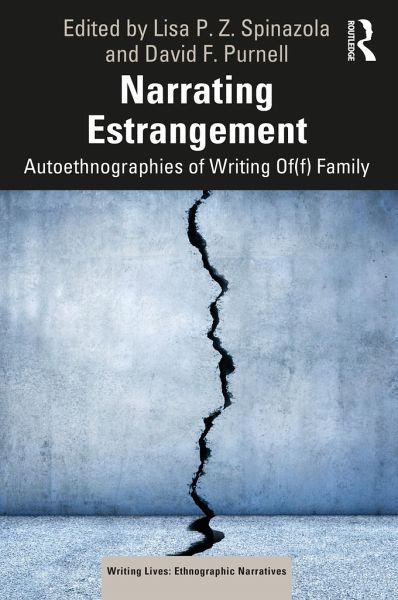
Narrating Estrangement
Autoethnographies of Writing Of(f) Family
Herausgegeben: Spinazola, Lisa P. Z.; Purnell, David F.
Versandkostenfrei!
Versandfertig in 6-10 Tagen
46,99 €
inkl. MwSt.

PAYBACK Punkte
23 °P sammeln!
The stories in Narrating Estrangement: Autoethnographies of Writing Of(f) Family demonstrate the pain, anguish, and even relief felt by those who contemplate estranging or who are estranged, whether by choice or circumstance. Despite the social assumptions persisting about the everlasting nature of family relationships, when people make the complicated and often difficult decision to disconnect from family members, they experience shame, stigma, and isolation because of social pressures to maintain those relationships at all costs.Each contributor uses the act of storytelling and the autoethno...
The stories in Narrating Estrangement: Autoethnographies of Writing Of(f) Family demonstrate the pain, anguish, and even relief felt by those who contemplate estranging or who are estranged, whether by choice or circumstance. Despite the social assumptions persisting about the everlasting nature of family relationships, when people make the complicated and often difficult decision to disconnect from family members, they experience shame, stigma, and isolation because of social pressures to maintain those relationships at all costs.
Each contributor uses the act of storytelling and the autoethnographic mode of scholarship and writing to find clarity in their individual, unique, and complex situations. Several authors' explorations restore some of what they have lost through estrangement-such as a sense of identity, emotional health and well-being, and feelings of belonging-due to the breakdowns in social and family support systems meant to be unconditional and "permanent." The stories display the wide array of reasons why family members become estranged, delving into different types of estrangement, permanent and/or intermittent. In doing so, the writers in this book demonstrate that family relationships are neither easily categorized nor neatly ended-their impact on an individual's life continues and changes, even in and through estrangement.
This book adds to the ongoing scholarly conversations about family estrangement for students and researchers interested in autoethnography and qualitative inquiry, in a wide range of disciplines in the social sciences, healthcare, and communication studies.
Each contributor uses the act of storytelling and the autoethnographic mode of scholarship and writing to find clarity in their individual, unique, and complex situations. Several authors' explorations restore some of what they have lost through estrangement-such as a sense of identity, emotional health and well-being, and feelings of belonging-due to the breakdowns in social and family support systems meant to be unconditional and "permanent." The stories display the wide array of reasons why family members become estranged, delving into different types of estrangement, permanent and/or intermittent. In doing so, the writers in this book demonstrate that family relationships are neither easily categorized nor neatly ended-their impact on an individual's life continues and changes, even in and through estrangement.
This book adds to the ongoing scholarly conversations about family estrangement for students and researchers interested in autoethnography and qualitative inquiry, in a wide range of disciplines in the social sciences, healthcare, and communication studies.





